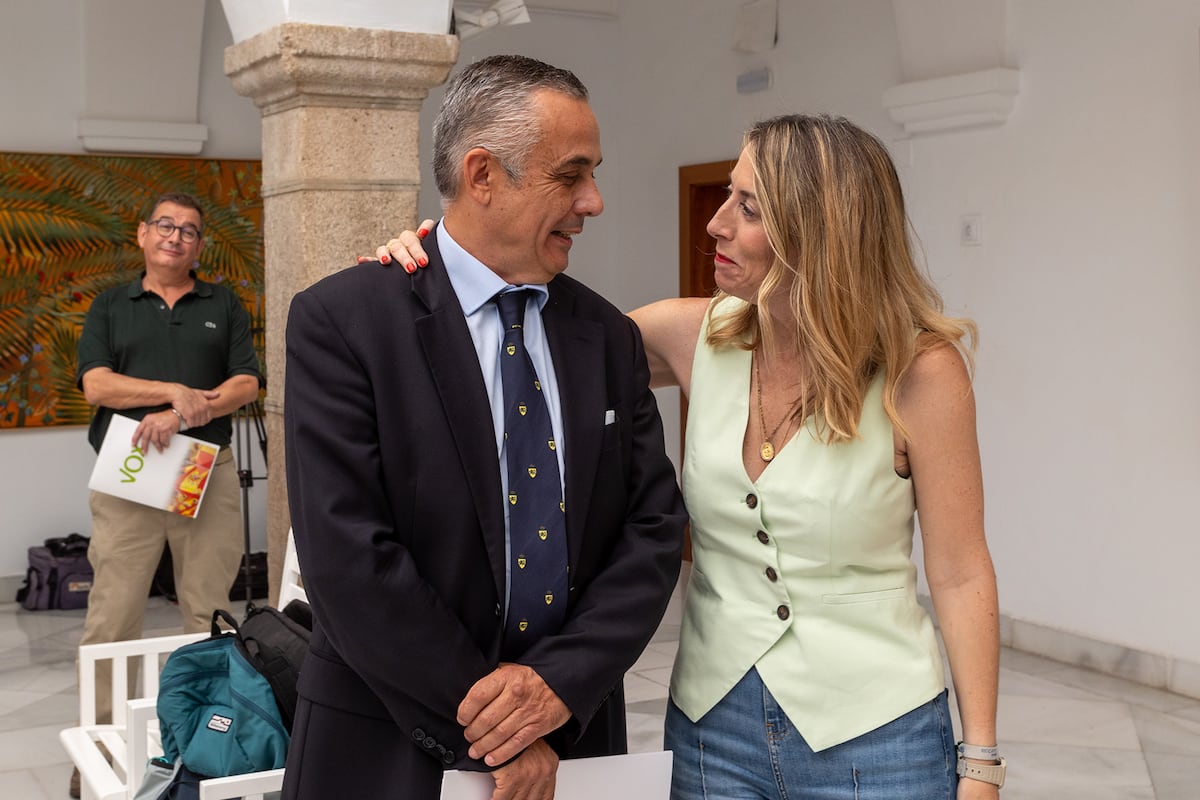The president of the Generalitat of Valencia, Ximo Puig, at the entrance to the Foro la Toja, in O Grove (Pontevedra), on Friday.ÓSCAR CORRAL
The Valencian president, Ximo Puig (Morella, 63 years old), has been the political protagonist of the week in Spain after announcing last Tuesday that the Generalitat Valenciana will reduce personal income tax on income of less than 60,000 euros gross per year to alleviate the effects of the inflation.
The announcement generated strong discomfort in the Government, chaired by the also socialist Pedro Sánchez, considering that it broke with his strategy and gave wings to the PP's tax proposals.
On Thursday, the Executive presented a reduction for income of up to 21,000 euros and a tax for large fortunes.
Puig is conciliatory, avoids the controversy and affirms that his position is aligned with that of the Government, in an interview arranged before the controversy, on the occasion of the celebrations of the Day of the Valencian Community, on October 9,
and the 40th anniversary of the Statute of Autonomy.
The conversation was held on Friday by phone due to scheduling conflicts.
Ask.
How do you feel after the impact of criticism?
Answer
.
It has been a very intense week: the general policy debate in Les Corts, the trip to Bologna with the ceramics businessmen, La Toja... In the debate we raised two fundamental questions: how can we fight inflation to the best of our possibilities and mark a path for the future.
I don't like polemics nor have I tried to argue at all.
P.
Do you mean that you did not expect the discomfort of the Government?
R.
You must always make efforts to try to understand others.
But our position is aligned with social democratic thinking and with the action of the Government of Spain.
There is a clear agreement that the objective is fiscal justice to achieve social justice.
P.
Would you have proceeded in the same way to know the reactions?
Did the government go ahead?
R.
Our agenda is clear.
We made this decision and I announced it on September 3.
What it is about is making social policy with a fiscal instrument.
More than six months ago we approved 10% reductions in all public prices and rates, and a whole series of measures...
P.
But they did not previously inform the Government of this latest reform, right?
R.
There were some conversations, but each one has their responsibility and we in no case propose fiscal policies against the Government.
We have the jurisdictional space, taxation, which is very small, and in that space we have acted, but doing social policy.
In the Valencian Community we came from the tax system with the greatest fiscal regressiveness in Spain by the PP governments.
In 2017 we made a very important reform because we had a higher income, lower rates, and we changed it.
Q.
Was the pressure too strong to stop your announcement?
R.
I am not going to go into that question, because it does not contribute to anything.
In a democratic politics there always has to be a space for debate and discussion and that is legitimate, that there is a divergence of positions at conjunctural moments.
But beyond any circumstantial differences that may exist, there are many more structural coincidences.
P.
_
They have accused him of playing the PP game, whose president, Alberto Núñez Feijóo, has registered his reform in line with his proposals.
R.
_
It is diametrically opposite.
We do not remove the Wealth Tax, but we strengthen the progressivity.
Our reform only affects the lowest and middle incomes.
It is obvious that it has nothing to do with what the right wing proposes, which is fiscal disarmament and an attack on the welfare state.
P.
Isn't it electoralist to take this measure, seven months before the regional elections?
R.
Not at all, is what we did in 2017 electoralist?
It is to adapt a government project to the needs of the principles that have to do with equal opportunities.
The Valencian president, Ximo Puig, in A Toxa (O Grove, Pontevedra).ÓSCAR CORRAL
Q.
But a week ago you stated that regions that lower taxes should be penalized in the financing system.
R.
What I said is that the fiscal effort should be included in the definition of the financing system, although it is already done in part, as one more indicator.
It is very correct on the part of the Government that those taxes that tend to relocate in a market unit are harmonized, as Europe does, as the G-20 has said with respect to Corporation Tax.
The cohesion of Spain must be based on energy and fiscal cohesion.
I defend co-responsibility, but there must be a harmonized environment.
Q.
So, lowering taxes is on the left, as José Luis Rodríguez Zapatero stated?
R.
Contributing more or less has to do, in my opinion, with rebalancing and, therefore, with social justice.
In our case, an in-depth update of taxation is needed from the point of view of large corporations and people with many resources do not contribute what corresponds.
Conditions have changed, we see the weight of technology companies, of companies that circulate outside the tax system... But in Spain, if we do not agree to reform the regional financing system, expired since 2014, or to renew of the CGPJ, since it is very difficult to reach these agreements, but they are enforceable.
P.
The Government has failed to comply with the reform of this system, one of the main pending issues in the Valencian Community, the worst financed in Spain...
R.
In this time, there has been a sensitivity that we had not had with other Spanish governments.
We have had more resources than ever, but we must seek a clear and defined scheme regarding the model, taxation and financing, like all federal states.
After these 40 years of regional self-government, it is necessary to lay down some foundations.
More spaces for cooperation and co-responsibility are needed.
And Sánchez has taken an important step with co-governance.
Q.
How do you rate those 40 years of self-government?
A.
Self-government is a key element in the economic and social development of the Valencian Community.
It has been able to generate a more cohesive and stronger society, in all economic and social indicators progress has been made.
It is true that we have some important deficits, some unknown in Spain, with almost 12 points below per capita income.
This happy Levante does not exist, but there have been immense advances in the welfare State, in education, in health, in social services, in industrial policy... Self-government has been key, for example, in the future implementation of the Volkswagen gigafactory in Sagunto [Valencia], with the support of the Government.
At first, we were not in that equation.
The autonomous state is the one that most resembles the real Spain.
P.
Have you spoken with President Sánchez in this intense week?
R.
_
I try to disturb as little as possible.
I speak with the president and I have a good understanding and I think he is making a great effort for this country.
Subscribe to continue reading
read without limits
Keep reading
I'm already a subscriber

/cloudfront-eu-central-1.images.arcpublishing.com/prisa/5EUQQUDSAJD35DIKXSDTNV2EPI.jpg)


/cloudfront-eu-central-1.images.arcpublishing.com/prisa/ICSAZBZTRZCF5GVPAFFRDUGXH4.JPG)
/cloudfront-eu-central-1.images.arcpublishing.com/prisa/SCDHZJIFAM5SVAG7XB4KK3N52U.jpg)


/cloudfront-eu-central-1.images.arcpublishing.com/prisa/QZCJZN3NI5CJXJCSYHFDKA4G3A.jpg)
